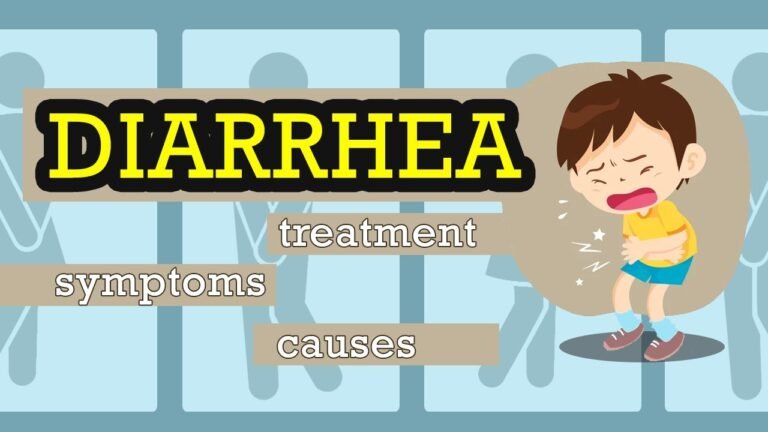Diarrhea, characterized by frequent, loose, or watery stools, is a common condition that most people experience at some point in their lives. While it is often a short-term issue, it can be uncomfortable and sometimes lead to dehydration and other complications if not managed properly. Understanding the causes of diarrhea and knowing how to avoid them can help reduce the frequency and severity of this condition. Additionally, medications like nizonide 500mg may play a role in the treatment of specific types of diarrhea. This article will delve into common triggers of diarrhea and offer tips on prevention and management.
Common Causes of Diarrhea
Infections
Bacterial Infections
Bacteria like Escherichia coli (E. coli), Salmonella, Shigella, and Campylobacter are common culprits of foodborne illnesses that lead to diarrhea. Contaminated food or water is a frequent source of these bacteria.
Viral Infections
Viruses such as norovirus, rotavirus, and adenovirus are leading causes of viral gastroenteritis, commonly known as stomach flu. These infections can spread through contact with an infected person or contaminated food and surfaces.
Parasitic Infections
Parasites like Giardia lamblia, Cryptosporidium, and Entamoeba histolytica can cause diarrhea, often due to contaminated water or food. Travelers to areas with poor sanitation are particularly at risk.
Food Intolerances and Allergies
Lactose Intolerance
Individuals with lactose intolerance lack sufficient lactase, the enzyme needed to digest lactose, the sugar found in milk. Consuming dairy products can lead to diarrhea, bloating, and gas.
Gluten Sensitivity or Celiac Disease
Gluten, a protein found in wheat, barley, and rye, can cause diarrhea in people with celiac disease or non-celiac gluten sensitivity. In celiac disease, gluten triggers an immune response that damages the small intestine.
Fructose Intolerance
Fructose, a sugar found in fruits, honey, and certain sweeteners, can cause diarrhea in individuals who have difficulty absorbing it.
Medications
Antibiotics
While antibiotics are effective in treating bacterial infections, they can also disrupt the balance of good and bad bacteria in the gut, leading to diarrhea. This condition, known as antibiotic-associated diarrhea, may range from mild to severe.
Laxatives
Overuse of laxatives can cause diarrhea as they stimulate bowel movements. Osmotic laxatives, in particular, draw water into the intestines, resulting in loose stools.
Other Medications
Some medications, including antacids containing magnesium, chemotherapy drugs, and certain blood pressure medications, can cause diarrhea as a side effect.
Chronic Conditions
Irritable Bowel Syndrome (IBS)
IBS is a common gastrointestinal disorder characterized by symptoms like abdominal pain, bloating, and changes in bowel habits, including diarrhea. Stress, certain foods, and hormonal changes can trigger IBS symptoms.
Inflammatory Bowel Disease (IBD)
IBD, which includes Crohn’s disease and ulcerative colitis, is a group of chronic conditions that cause inflammation in the digestive tract. Diarrhea is a common symptom of these conditions.
Malabsorption Disorders
Conditions like chronic pancreatitis, cystic fibrosis, and certain surgeries that affect the intestines can lead to malabsorption of nutrients, causing diarrhea.
Food Poisoning
Food poisoning occurs when you consume food or water contaminated with harmful bacteria, viruses, or parasites. Symptoms often include diarrhea, vomiting, and stomach cramps. Common sources include undercooked meats, raw eggs, unpasteurized dairy products, and contaminated produce.
Traveler’s Diarrhea
Traveler’s diarrhea is a common issue for people traveling to regions with poor sanitation. It is usually caused by consuming contaminated food or water. Bacteria like E. coli are often responsible.
Preventing Diarrhea
Practice Good Hygiene
- Wash your hands thoroughly with soap and water, especially before eating or preparing food, after using the restroom, and after handling pets or cleaning up after them.
- Use hand sanitizer containing at least 60% alcohol when soap and water are unavailable.
Ensure Food Safety
- Cook meats thoroughly, ensuring that they reach the appropriate internal temperature to kill harmful bacteria.
- Avoid consuming raw or undercooked eggs, poultry, and seafood.
- Wash fruits and vegetables under running water before eating or cooking them.
- Avoid cross-contamination by using separate cutting boards for raw meats and other foods.
- Refrigerate perishable foods promptly and do not consume food that has been left out for more than two hours.
Be Cautious When Traveling
- Drink bottled or boiled water and avoid ice made from tap water in areas with poor sanitation.
- Avoid raw fruits and vegetables unless you peel them yourself.
- Choose foods that are thoroughly cooked and served hot.
- Consider taking preventive medications, such as Nizonide 500mg, if traveling to high-risk areas for parasitic infections.
Manage Food Intolerances
- If you have lactose intolerance, consider lactose-free dairy products or lactase supplements to aid digestion.
- For gluten sensitivity or celiac disease, avoid foods containing gluten and opt for gluten-free alternatives.
- Identify and limit foods that trigger symptoms of fructose intolerance.
Use Medications Wisely
- Only use antibiotics when prescribed by a healthcare provider and follow the prescribed dosage and duration. Discuss any concerns about side effects with your doctor.
- Use laxatives as directed and avoid overuse.
- If you experience diarrhea as a side effect of a medication, consult your healthcare provider for alternatives or supportive treatments.
Manage Chronic Conditions
- If you have a chronic condition like IBS or IBD, work with your healthcare provider to manage symptoms through diet, medications, and lifestyle modifications.
- Regular check-ups and monitoring can help prevent flare-ups and complications.
The Role of Nizonide 500mg in Diarrhea Management
Nizonide 500mg (Nitazoxanide) is an antiparasitic medication commonly used to treat diarrhea caused by parasitic infections like Giardia lamblia and Cryptosporidium parvum. It works by interfering with the energy production of parasites, ultimately killing them and resolving the infection.
When to Use Nizonide 500mg
Traveler’s Diarrhea
If you develop diarrhea while traveling to areas where parasitic infections are common, Nizonide 500mg may be prescribed by your healthcare provider.
Parasitic Infections
If you are diagnosed with a parasitic infection causing diarrhea, your doctor may prescribe Nizonide 500mg as part of your treatment plan.
Dosage and Precautions
- The typical dosage for adults is 500mg taken twice daily for 3 days. However, your healthcare provider will determine the appropriate dosage based on your specific condition.
- Nizonide 500mg should be taken with food to enhance absorption and reduce the risk of stomach upset.
- It is important to complete the full course of treatment even if symptoms improve before the medication is finished to ensure the infection is fully eradicated.
- Consult your doctor before taking Nizonide 500mg if you have any underlying health conditions or are taking other medications.
Conclusion
Diarrhea can be triggered by a variety of factors, from infections to food intolerances, medications, and chronic conditions. Understanding these common causes and taking preventive measures can significantly reduce the risk of developing diarrhea. Practicing good hygiene, ensuring food safety, managing food intolerances, and using medications wisely are key strategies in preventing diarrhea. For those traveling to high-risk areas or dealing with parasitic infections, medications like Nizonide 500mg may be essential in managing and treating diarrhea. If you experience persistent or severe diarrhea, it is important to seek medical advice to determine the underlying cause and receive appropriate treatment.



